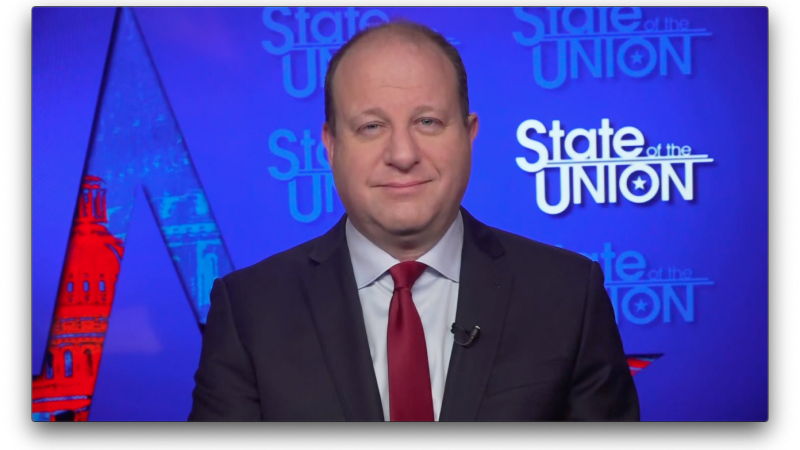Families of three service members awarded death benefits for border security efforts
Prior to this year, Texas Military Department service members and their families didn’t have the same benefits while serving on active state duty as they do while serving on federal deployments for over 30 days.
For roughly a year, military leaders and advocates for service members called on the Texas legislature to extend state death benefits to active-duty military members and national guardsmen deployed to the border working through Gov. Greg Abbott’s Operation Lone Star.
Prior to this year, Texas Military Department service members and their families didn’t have the same benefits while serving on active state duty as they do while serving on federal deployments for over 30 days.
Providing benefits to Texas service members was a legislative priority of House Speaker Dade Phelan. In the House, state Rep. Jared Patterson, R-Frisco, and multiple cosponsors, filed HB 90 to provide a remedy. A companion bill was filed in the Senate by state Sen. Joan Huffman, R-Houston. The bill was named the Bishop Evans Act, after a National Guardsman who drowned last April while attempting to rescue drug smugglers illegally crossing the Rio Grande River.
The bill unanimously passed the House and Senate. Gov. Greg Abbott signed it, and several other border bills, earlier this year. They went into effect Sept. 1.
The new law provides death benefits, expands worker’s compensation costs for those diagnosed with post-traumatic stress disorder while serving on state active duty, and establishes a way to expedite workplace injury claims.
Members of the Texas National Guard serve part time while working civilian jobs, and are called up on short-term deployments to respond to emergency situations. However, with roughly 6,500 guardsmen called to the border through Abbott’s border security mission, deficiencies were identified that needed to be addressed, including the need to adjust benefits.
Within three months of the new law going into effect, the Attorney General’s Office announced that four lump-sum death benefits had been awarded for fallen OLS soldiers. The law stipulates that the benefits be awarded to surviving spouses, children or parents.
Four disbursements were made for three service members who died while serving in Operation Lone Star, the AG’s office told The Center Square. One individual had designated recipients, which is why there were four payments. For service members with one beneficiary, the disbursement was $500,000; for two beneficiaries, each received $250,000.
The payments were made on behalf of three Texas servicemen who gave the ultimate sacrifice defending Texas:
• Sgt. Bishop Elijah Evans died on April 25, 2022, by accidental drowning while attempting to rescue foreign nationals who appeared to be drowning while swimming across the Rio Grande River near Eagle Pass, Texas. In the process, he went missing; his body was found three days later. The foreign nationals who survived were later identified as drug smugglers, investigators with the Texas Rangers said.
Evans, 22, of Arlington, was a field artilleryman who was assigned to A Battery, 4-133 Field Artillery Regiment in New Braunfels. He joined the Texas Army National Guard in May 2019. He joined OLS operations after returning from serving in Kuwait.
• Spc. Dajuan Lester Townes died on Feb. 7, 2022, in a non-mission related incident, the Texas Military Department initially reported. It was later disclosed that he died from an accidental gunshot wound to the torso while a weapon was being serviced nearby. He was conducting training at Fort Clark Springs in Brackettville, Texas, at the time of his death.
Townes, 19, of Spring, was an army horizontal construction engineer, assigned to the 272nd Engineer Company, 386th Engineer Battalion, aligned under the 176th Engineer Brigade, Texas Army National Guard. He joined the Texas Army National Guard in October 2019.
• Sgt. Alex Juan Rios Rodriguez died on July 14, 2022, in a non-mission related incident at his quarters in McAllen, the Texas Military Department initially reported. “He suffered a medical emergency at the unit's hotel and was unable to be revived by emergency personnel.”
It was later disclosed that he died from a heart attack after returning from being out in the field. Medics swiftly intubated him and transported him to the emergency room, where he later died.
Rodriguez, 52, of San Antonio, was assigned as a Team Leader for Delta Company, 536th Brigade Support Battalion, 72nd Brigade Combat Team, 36th Infantry Division.
“Although nothing can replace a family’s loved one, our state seeks to honor the cherished memory and brave service of those who lost their lives in Operation Lone Star,” Attorney General Ken Paxton said when announcing the death benefits. “We have the opportunity to honor their sacrifice by distributing this benefit through the Crime Victim Compensation Program.”














